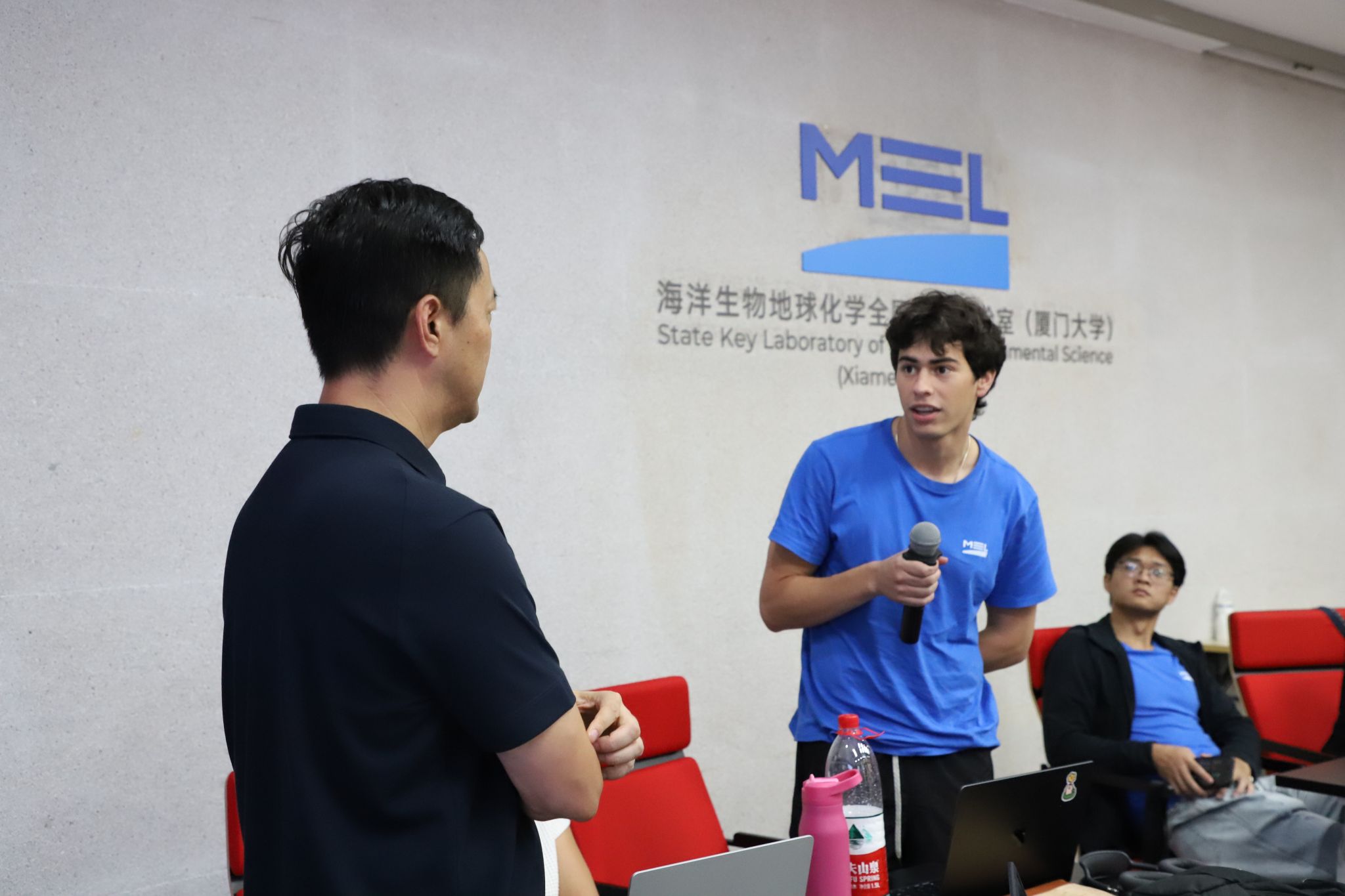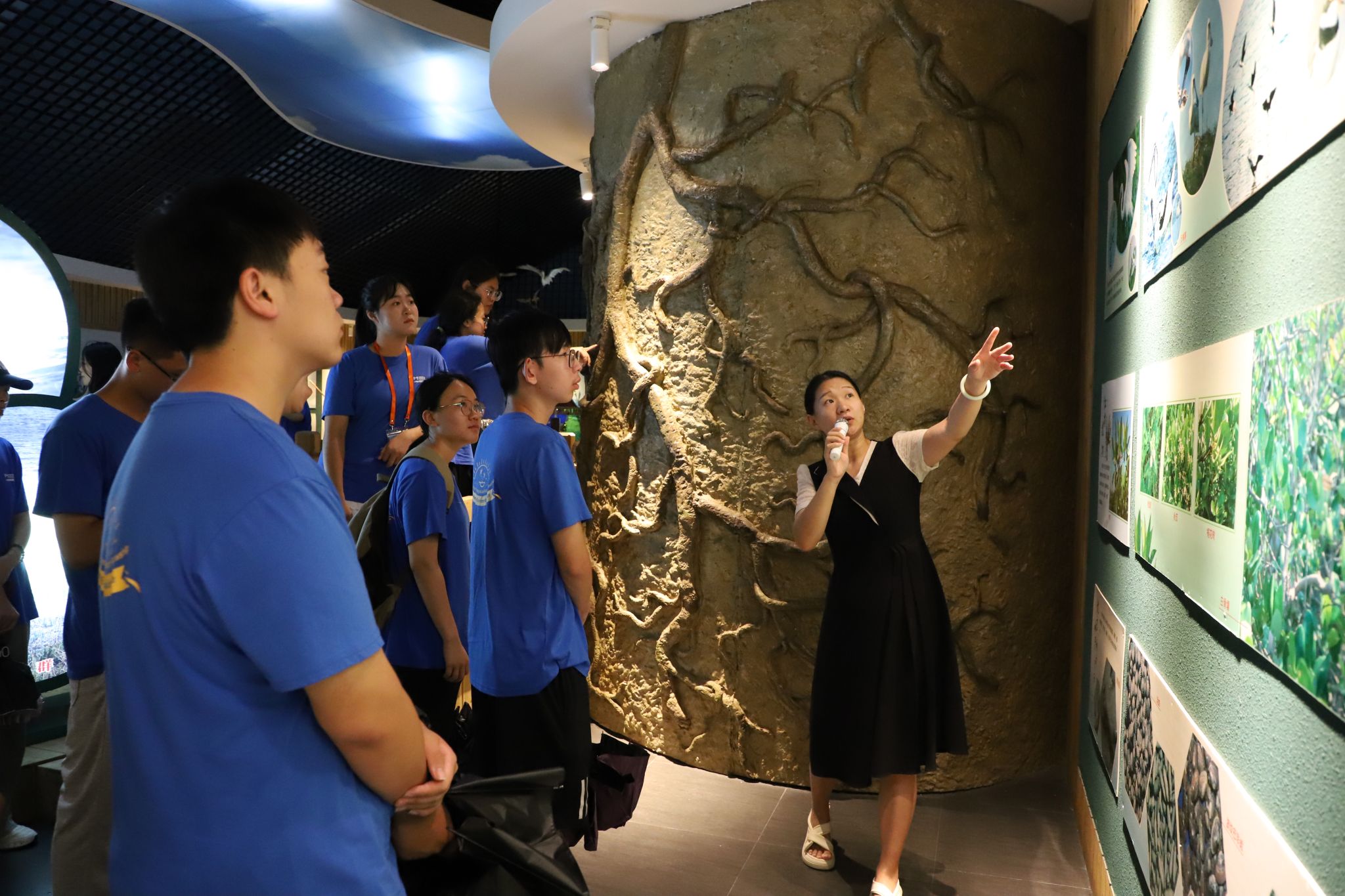Xiamen, China–September 2025 2025 MEL Summer Undergraduate Research Fellowship Program in Marine Environmental Science (URF), hosted by the State Key Laboratory of Marine Environmental Science (MEL) at Xiamen University, successfully concludes. Guided by dedicated MEL faculty members, 29 selected students from 20 universities across China, Malaysia, Indonesia and the United States immersed themselves in a transformative research journey.
The URF program was designed to bridge theoretical knowledge with hands-on experience, fostering the next generation of marine scientists.
Curiosity: Lectures that Inspired
A lecture series featuring MEL's distinguished lecturers illuminates various frontiers of marine and environmental science.

How to identify a scientific question
Professor Cai Yihua emphasized that formulating a compelling research question is the cornerstone of scientific projects. He outlined a clear path for moving from broad topics to well-defined, researchable questions.

Smart buoy technology revolutionizing ocean observation
Synergistic multi-parameter monitoring from temperature-salinity to biogeochemistry
Associate Professor Huang Yibin illustrated the leap from traditional ship-based measurements to the autonomous, global-scale data collection enabled by next-generation Argo floats, even engaging students with a self-made LEGO Argo model.

Some guidelines to write your first scientific paper
Professor Wang Weilei shared the "SUCCESS" framework (Simple, Unexpected, Concrete, Credible, Emotional, Stories) for crafting compelling research narratives and encouraged students to "write first, perfect later."

How to read academic literature better
Associate Professor Chen Bicheng introduced a strategic "three-pass" method for reading scientific papers, enabling students to efficiently grasp main ideas and dive deep into details as needed.

Marine Cloud and its support for decision-making
Professor Chen Nengwang presented the in-house developed "Ocean Cloud" platform, demonstrating how big data and AI are being harnessed for intelligent coastal management.


Exploration: Hands-On Practice in the Lab and at Sea
Beyond the classroom, URF fellows engaged deeply with the instruments and environments of modern marine research.
An "Instrument Open House and Experimental Session" on August 4 allowed students to get hands-on with cutting-edge equipment, including the Inductively Coupled Plasma Mass Spectrometer (ICP-MS) for trace element analysis, the Field Emission Scanning Electron Microscope for observing microscopic structures, the AA500 Nutrient Autoanalyzer for precise chemical measurements, and the CTD profiler for capturing oceanographic profiles.




The pinnacle of practical experience was a dedicated research cruise aboard the R/V Ocean II on August 15. Students conducted integrated sampling in the Jiulong River Estuary, performing tasks across physical, chemical, geological, and biological disciplines—from collecting water and sediment samples to identifying benthic organisms—gaining a holistic understanding of marine field work.





Connections: Exchanges and Shared Insights
The URF experience was enriched by numerous opportunities for cross-cultural and academic exchange. Students participated as judges in the "2025 Junior Blue Pioneer Program" sustainability project presentations and attended networking activity with MEL's PhD candidates, who shared insights on securing research grants and navigating graduate period.




Field trips to University's Dongshan Swire Marine Station and Zhangjiang Estuary Mangrove Wetland Ecosystem Station provided a ground-level view of long-term ecological monitoring and conservation efforts, highlighting the real-world impact of their scientific training.




Echoes of a Transformative Summer
The program concluded, but the impressions remain deeply etched in the minds of the participants.
"Sampling and operating equipment in the wind and waves gave me a profound understanding of the hardships and rigour of oceanic research," shared Teoh Ming Chi from Malaysia.
"MEL is a very warm platform; everyone I met was sincere and kind, offering encouragement and inspiration. I feel incredibly lucky to be a URF member," said Hou Yage, a student from China.
"I am sincerely grateful for the help from the research group, which allowed us to better integrate into the life of scientific research. Additionally, I am sincerely thankful to the URF organizing committee for their warm birthday wishes. I hope URF gets better and better," said Zhu Haojun, a student from China.
"The various trainings and talks have equipped me with valuable knowledge and experience. I am so glad that I joined it," reflected Yosef Kristian Tirta from Indonesia.
"I had a great time working on my project. My lab mates and mentor were easy to communicate with leading to a smooth experience. I gained substantial knowledge regarding research and my topic," added Dominic Profit, a student from the USA.
As this year's URF fellows disperse to their home institutions, they carry with them not just new knowledge and skills, but a renewed sense of curiosity, resilience, and a shared commitment to shaping the future of our blue planet.
Written by Wang Guanfei
Edited by Luo Yawei, Shi Wei
Photo by Wang Guanfei, Wang Jingxiao, Gan Shaomin